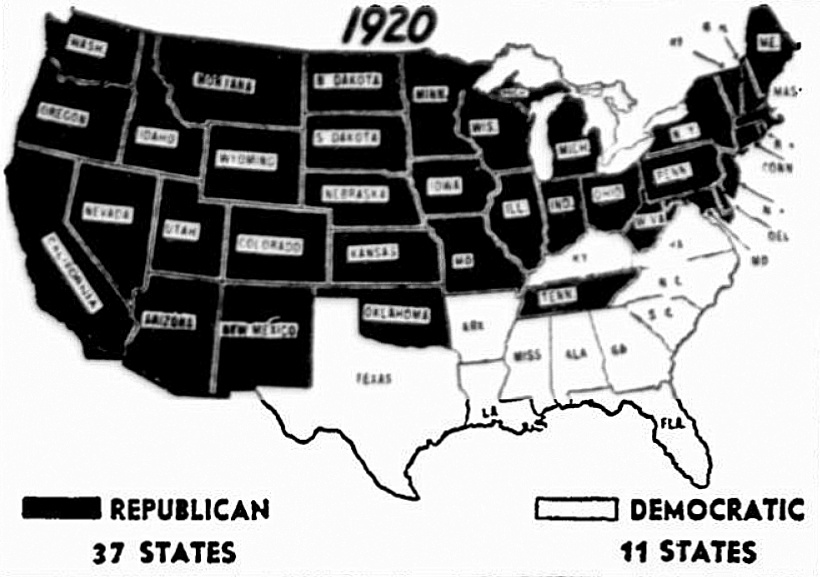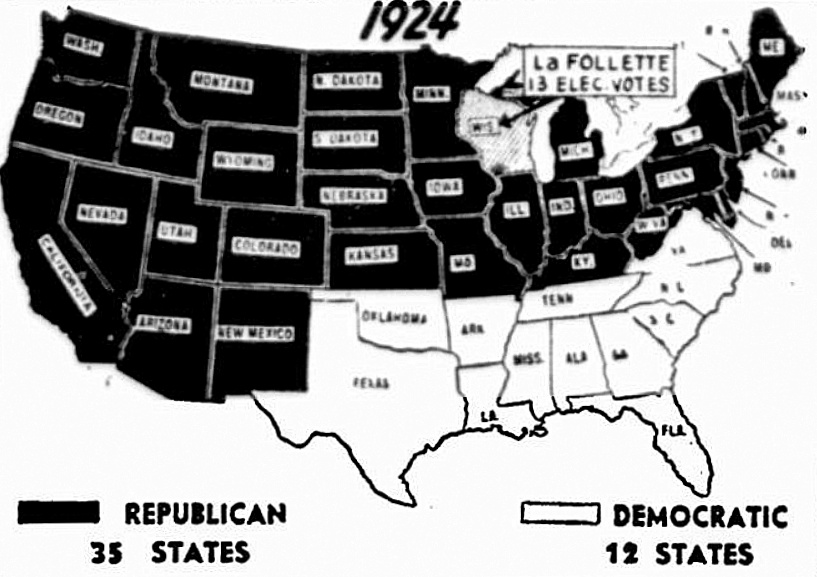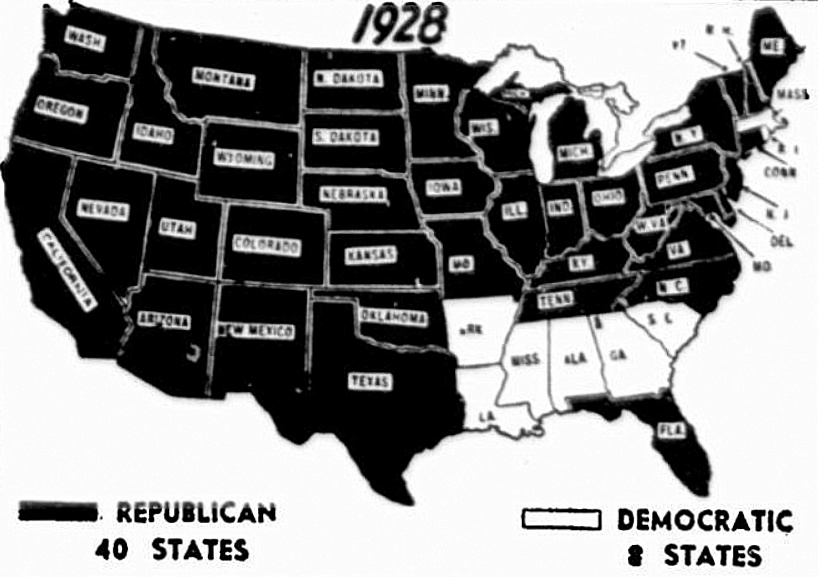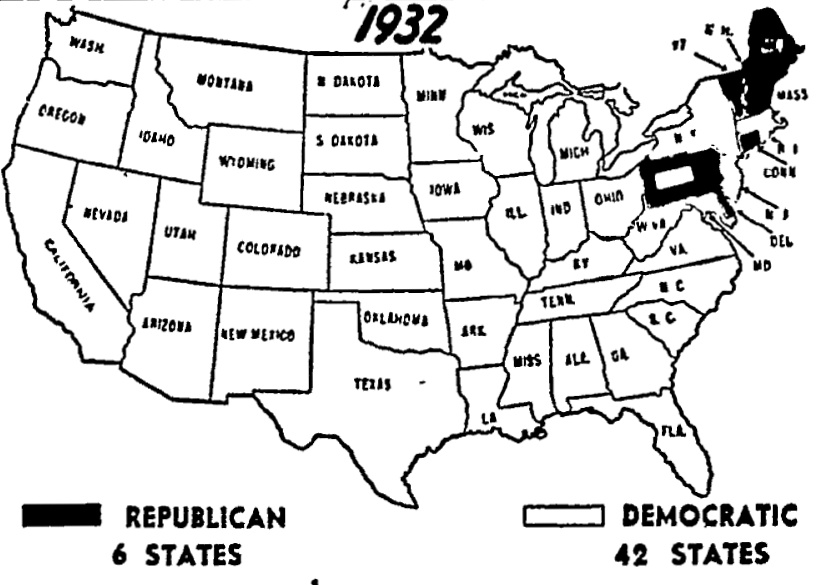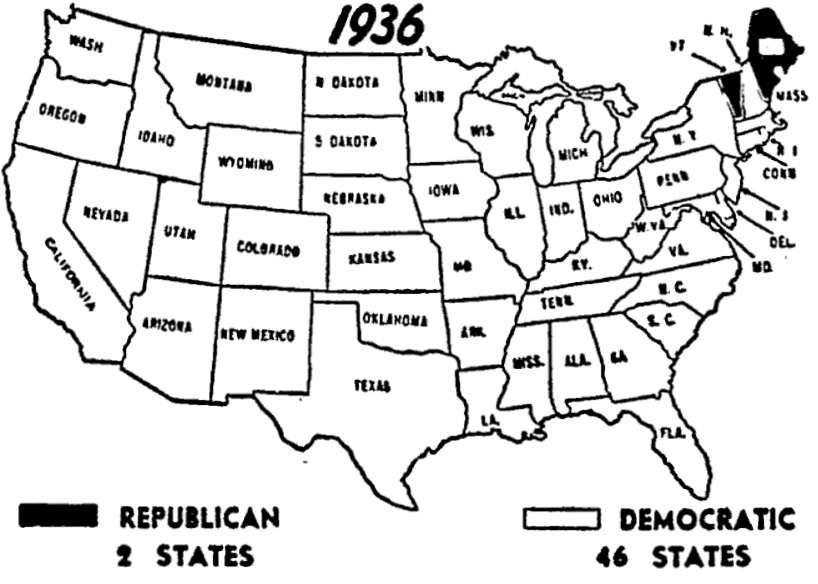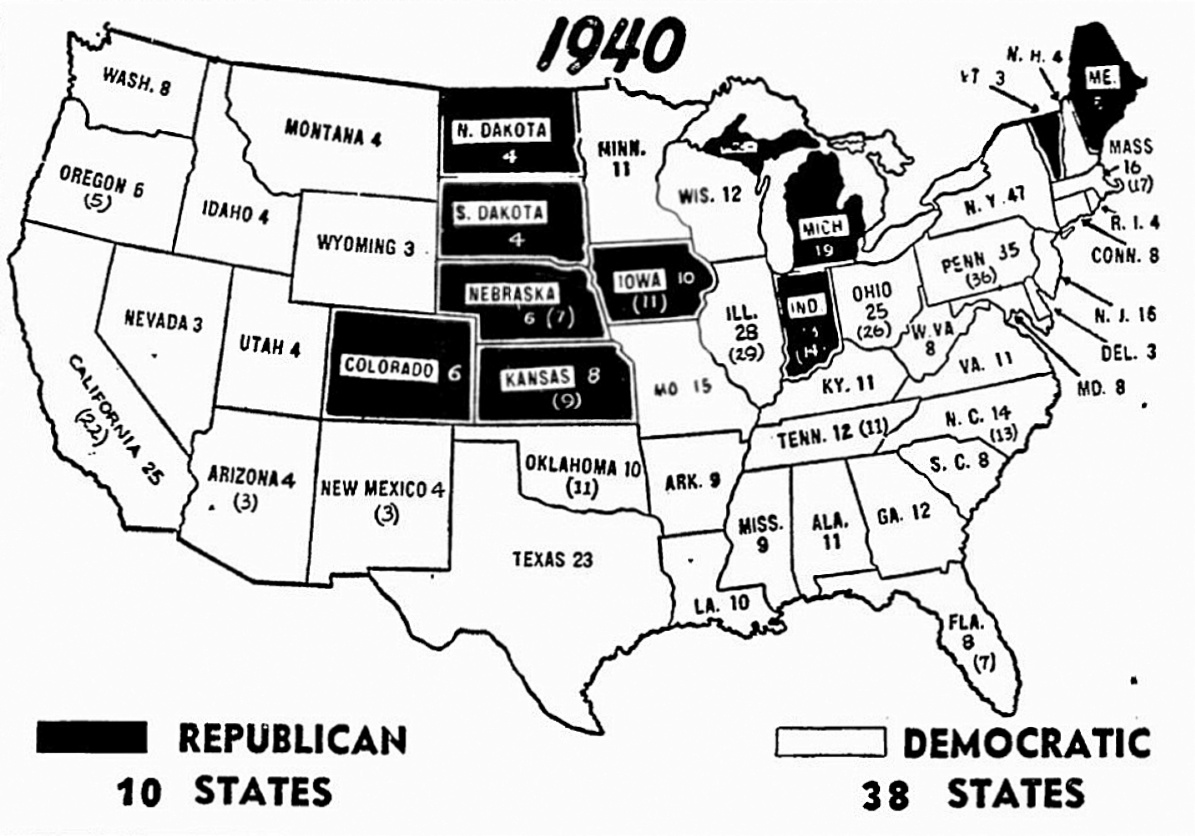
Bricker: Elect ‘vigorous’ man
Stresses huge task ahead for President
Cleveland, Ohio (UP) – (Nov. 4)
Ohio Governor John W. Bricker, ending his eight-week, 16,000-mile campaign, called tonight for the election of a President “vigorous enough to perform the greatest task that ever confronted an American statesman.”
Governor Thomas E. Dewey, Republican nominee, Mr. Bricker said, in an address at the Music Hall, is “that man.”
The GOP vice-presidential nominee voiced confidence that next Tuesday “this long-suffering nation will free itself from the depressing regimentation of the New Deal.”
Hits Hillman, Browder
Taking a parting shot at Sidney Hillman who, he said, was “working in double harness” with Earl Browder, “the ex-convict whom President Roosevelt released from the penitentiary in time to manage his campaign,” Governor Bricker said:
I am fully convinced, after my travels over practically this entire country, that neither Hillman nor Browder will have their way with the working men and women of this country.
Governor Dewey, he added, “with his record and reputation for good government, for efficiency, for order and for single-minded devotion to public service, would be the last person to win Mr. Browder’s support.”
Calls for change
Calling for a change from the Democrats to Republicans next Tuesday, Governor Bricker said the need was for an administration that would “restore responsible cabinet government and free us from the caprice of one-man government.”
Making his final appeal for the election of Dewey, Governor Bricker said:
We must choose a leader who is vigorous enough to perform the greatest task that ever confronted an American statesman. We must choose a leader who will take the American people into his confidence instead of asking them to take him on faith… who will select the ablest en available for places of responsibility instead of making appointments on the basis of friendship or to pay off political obligations.
